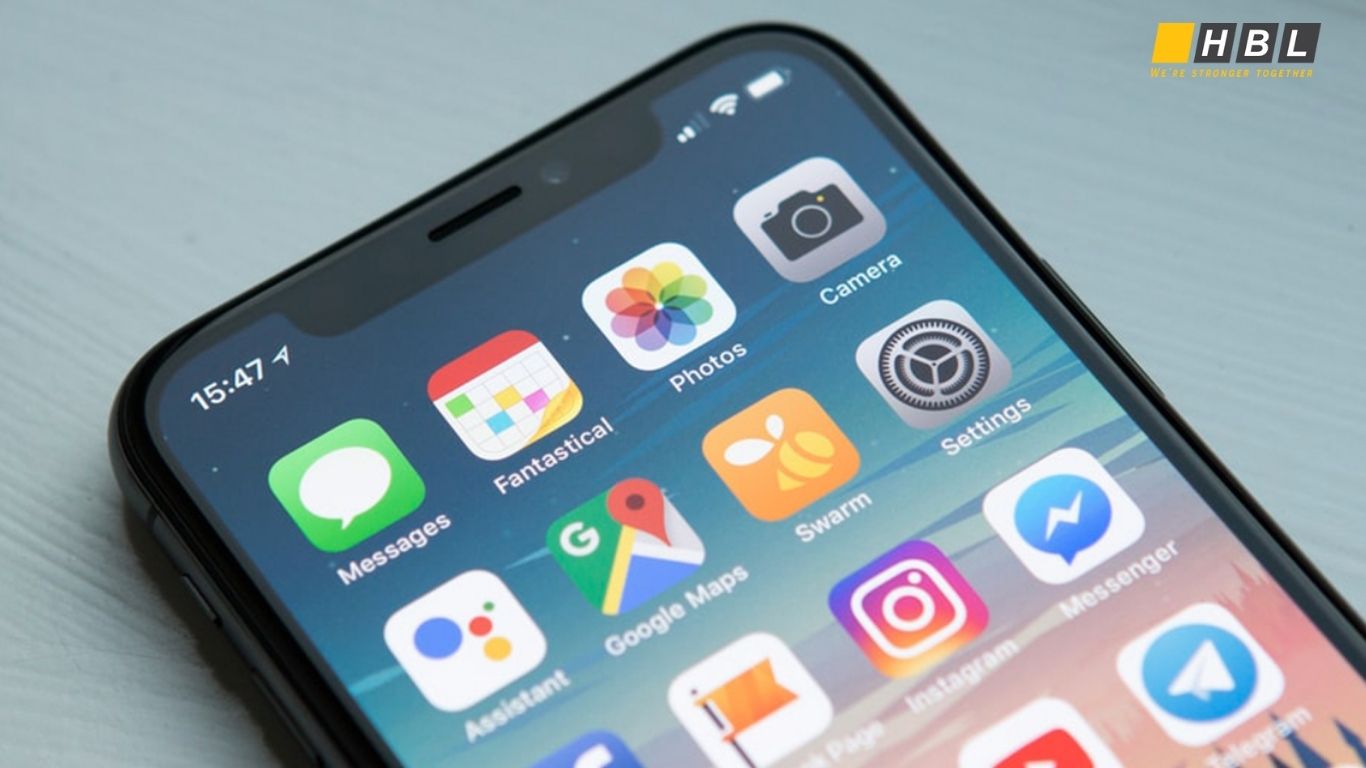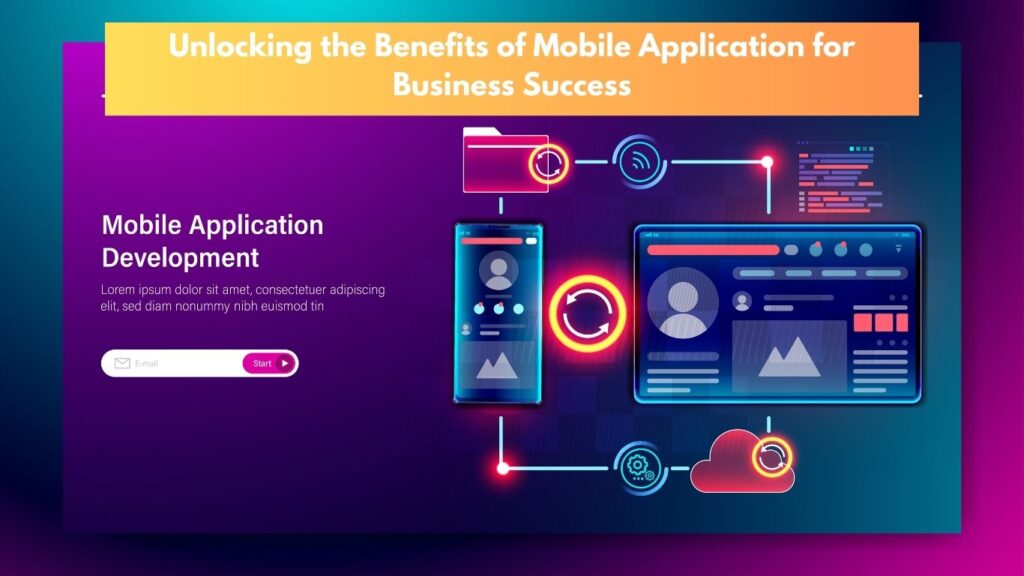In today’s rapidly evolving digital landscape, customers have greater expectations than ever before. People want instant access, personalized experiences, and seamless service—and they want it all on their phones. That’s where the benefits of mobile application development for businesses come in. Whether you’re running a startup or managing a large enterprise, having a mobile app is no longer a luxury—it’s a strategic necessity.
The Rise of Mobile Apps: A New Business Necessity
Over the past decade, mobile usage has skyrocketed. As of 2025, more than 70% of web traffic comes from mobile devices, and users spend the majority of that time on apps—not browsers. This transformation has changed the way businesses engage with their customers.
Mobile applications provide direct, uninterrupted access to your brand, allowing you to deliver value instantly. Unlike traditional websites or email campaigns, apps offer a constant, on-screen presence—helping businesses stay top-of-mind and build stronger customer relationships.
From enhanced engagement and real-time communication to personalized experiences and better conversion rates, the benefits of mobile application integration are clear. For businesses aiming to thrive in a mobile-first world, the time to invest in an app is now.

1. Enhanced Brand Visibility
One of the standout benefits of mobile application development for businesses is the ability to significantly improve brand visibility. In contrast to websites, which require users to actively seek out your services, mobile apps live directly on users’ devices. This constant presence on the home screen acts as passive advertising—each time a user unlocks their phone, your app icon reinforces brand recognition.
Mobile apps also allow for a branded user interface, personalized notifications, and consistent messaging that help shape the user’s perception of your business. Over time, this familiarity builds trust and encourages customers to associate your brand with reliability and convenience.
Moreover, apps often create a sense of exclusivity. When customers download your app, it feels like a more personal connection compared to simply visiting a website. This deeper engagement not only boosts visibility but also strengthens emotional ties between your brand and your audience.
As competition grows in nearly every industry, having a mobile app is a strategic way to stand out and stay top-of-mind, especially in mobile-first markets. Whether it’s through app store optimization, push notifications, or seamless in-app experiences, businesses that invest in mobile visibility are better positioned to grow their brand equity.
2. Direct and Personalized Communication
One of the most powerful benefits of mobile application integration is the ability to establish direct and personalized communication with your customers. Unlike traditional marketing channels such as email or web ads—which often get filtered, ignored, or lost in clutter—mobile apps offer a more immediate and focused way to reach users.
Through push notifications, businesses can send real-time updates, special promotions, or personalized messages directly to a user’s device. These notifications can be tailored based on user behavior, preferences, location, or purchase history, ensuring that the content is both relevant and timely. This not only increases engagement rates but also fosters a stronger emotional connection between the brand and its users.
In-app messaging features also allow for smooth two-way communication. Whether it’s customer support chat, survey requests, or onboarding guides, mobile apps make it easier for businesses to interact with customers in real-time—without requiring them to switch platforms or wait for email responses.
Moreover, personalization within apps enhances user satisfaction. When users feel that an app “understands” their needs—suggesting products, services, or content tailored to them—they’re more likely to return, make purchases, and recommend the app to others.
In short, a mobile app serves as a direct line to your audience, offering communication that is faster, more relevant, and more personal than any other digital tool.

3. Improved Customer Engagement
One of the most significant benefits of mobile application development is its ability to drastically enhance customer engagement. Mobile apps offer businesses a unique opportunity to engage with their customers in ways that are more interactive, personalized, and consistent than other channels.
With the use of in-app features such as push notifications, gamification, and personalized content, mobile apps keep users actively engaged with the brand. For example, apps can send reminders, updates on new products, or even special offers based on the user’s preferences or behavior, ensuring they feel valued and connected to the business.
Beyond notifications, mobile apps foster engagement through interactive elements such as loyalty programs, rewards, and challenges. Gamification techniques like earning points, unlocking badges, or completing tasks create a fun and engaging environment that motivates users to interact more frequently with the app. This not only strengthens the relationship between the business and the user but also increases customer retention by making the experience enjoyable and rewarding.
Another key aspect of engagement is the ability to deliver real-time content. Whether it’s live updates on order status, instant support through in-app messaging, or location-based promotions, apps offer seamless and immediate communication with users—keeping them informed and satisfied at all times.
Additionally, apps create opportunities for user-generated content such as reviews, ratings, or social sharing. By encouraging customers to participate, businesses can build community engagement, gather valuable feedback, and improve their services.
In summary, a mobile app offers businesses the chance to provide a more dynamic and rewarding experience for their customers. By offering convenience, interactivity, and personalization, businesses can significantly boost engagement, ensuring that customers stay connected and loyal.
4. Leveraging Device Capabilities
Mobile applications are much more than just a digital interface; they’re a direct extension of the device’s powerful hardware. One of the significant benefits of mobile application development is the ability to leverage this hardware to offer truly innovative services. With mobile apps, businesses can integrate various device features to revolutionize the way they interact with customers.
Push notifications are perhaps one of the best examples, as they allow businesses to push messages directly to users’ devices, bypassing the need for emails or visits to a website. These notifications can trigger actions based on user behavior, ensuring messages are timely and relevant.
Moreover, by integrating with camera and microphone features, apps can engage users in entirely new ways. Take, for example, apps that use augmented reality (AR) to allow customers to virtually try on products before purchasing or apps that use voice recognition to enable hands-free interactions for added convenience.
By tapping into GPS technology, businesses can deliver highly contextual content, such as location-based promotions, while also improving operational efficiency. Delivery services, for instance, can track packages in real-time, enhancing the customer experience with transparent tracking features.
Ultimately, mobile apps provide businesses with a unique ability to harness the full capabilities of users’ devices, transforming mobile interactions into seamless, cutting-edge experiences that drive growth and customer loyalty.

5. Offline Access and Convenience
One of the standout benefits of mobile application development is the ability to offer users offline access to key features and content, ensuring a seamless experience regardless of their internet connectivity. Unlike websites or web-based applications that rely heavily on an internet connection, mobile apps can store critical data locally on the device, allowing users to continue using the app even without a Wi-Fi or mobile data connection.
This offline functionality is especially beneficial for users in areas with unreliable internet access or those who are on the go and prefer not to rely on data usage. For instance, a travel app can allow users to download maps, itineraries, or local guides, enabling them to access important information during their trip without worrying about internet connectivity. Similarly, a music app may allow users to listen to their favorite tracks offline, providing convenience during long commutes or while traveling in areas with poor signal coverage.
Offline access not only enhances user experience but also improves overall app retention rates. When users can access content or features without disruption, they are more likely to continue using the app regularly, boosting engagement and satisfaction. This also ensures that users can maintain a consistent experience, even if they are temporarily disconnected from the web.
Furthermore, offline access can optimize app performance and speed. By storing data locally, apps can quickly load content without the need to retrieve it from remote servers, reducing latency and providing a faster, more responsive user experience.
In summary, offline access is a crucial feature that makes mobile applications more convenient, reliable, and user-friendly. Whether it’s for on-the-go accessibility or improved performance, offering offline capabilities gives businesses a competitive edge by meeting the needs of users in an increasingly mobile and data-conscious world.
6. Data-Driven Insights
One of the key benefits of mobile application development is the ability to gather and leverage data-driven insights. Mobile apps track valuable user data, including behaviors, preferences, and interactions, providing businesses with a wealth of information to enhance decision-making and improve customer experience.
Through app analytics, businesses can monitor user activity, session duration, and purchasing patterns to identify trends and optimize user journeys. For instance, if customers frequently abandon carts at a certain point, businesses can address this to reduce drop-offs.
Mobile apps also enable personalized marketing, delivering tailored offers and recommendations based on user data, which increases conversion rates and builds loyalty. With real-time data, businesses can adjust strategies instantly to remain responsive to customer needs.
In addition, customer feedback and in-app ratings provide valuable insights for product development, ensuring continuous improvement and customer satisfaction.
In short, data-driven insights empower businesses to make informed decisions, boost engagement, and enhance user retention through targeted actions.
7. Competitive Advantage
A well-designed mobile app enables businesses to offer unique features and services that appeal to customers, improving brand perception and loyalty.
By leveraging mobile apps, businesses can deliver personalized experiences, streamline customer interactions, and offer convenient, on-the-go access to their products or services. This creates a seamless and engaging user experience that encourages repeat business and strengthens customer retention.
Moreover, mobile apps allow businesses to respond quickly to market trends, adapt to customer needs, and stay ahead of the competition. With real-time data and insights, companies can fine-tune their strategies, optimize marketing efforts, and continually innovate to meet consumer expectations.
In summary, a mobile app can give businesses a clear competitive advantage, helping them stay relevant, engage customers more effectively, and ultimately drive growth.

8. Increased Revenue Opportunities
A key benefit of mobile application development is the ability to unlock new and diverse revenue streams. With mobile apps, businesses can offer products, services, and premium features directly to users in a streamlined and convenient environment—anytime, anywhere.
In-app purchases, subscriptions, mobile advertising, and upselling opportunities can significantly boost income. For e-commerce businesses, mobile apps often lead to higher conversion rates compared to mobile websites, thanks to smoother navigation, faster checkout processes, and personalized product recommendations.
Additionally, push notifications and targeted promotions can drive user engagement and encourage spontaneous purchases. Mobile apps also allow businesses to launch exclusive offers or loyalty programs, incentivizing users to spend more and return frequently.
By providing a direct and personalized sales channel, mobile apps help companies not only increase sales but also strengthen customer relationships—creating long-term value and sustainable growth.

Conclusion: Embracing the Mobile Revolution
The benefits of mobile application development are clear—enhanced customer engagement, increased revenue, improved efficiency, and stronger brand loyalty. In a mobile-first world, having an app isn’t just a nice-to-have; it’s a strategic advantage.
By embracing mobile technology, businesses can stay competitive, deliver value faster, and build lasting connections with their audience. Now is the time to invest and grow through mobile innovation.
See more:
A Guide to Web Application Languages: Choosing the Right One & Top 11 Languages to Know




